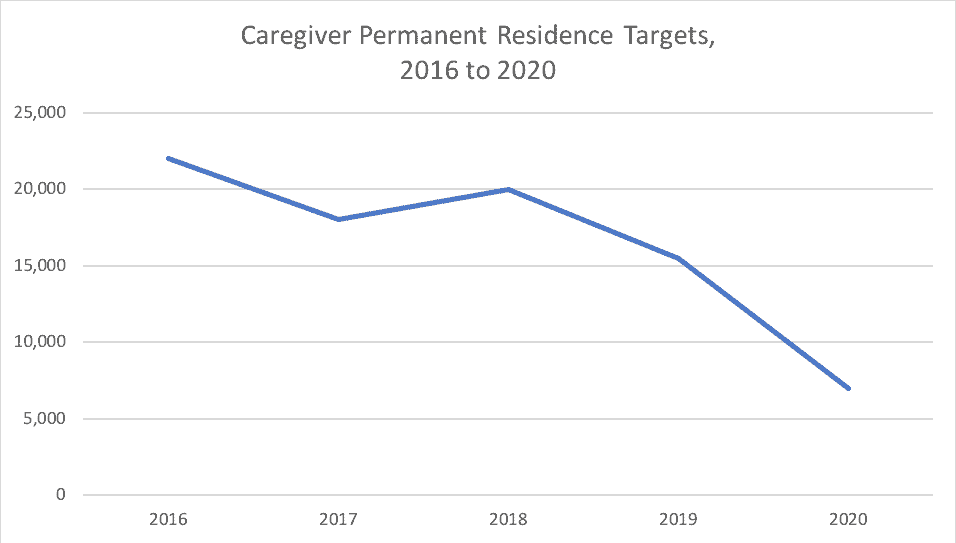 March 2, 2018 – Despite reassurances from Canada Immigration Minister Ahmed Hussen, foreign caregivers remain concerned about the future of two programs offering them pathways to permanent residence.
March 2, 2018 – Despite reassurances from Canada Immigration Minister Ahmed Hussen, foreign caregivers remain concerned about the future of two programs offering them pathways to permanent residence.
Canada’s federal government says it is undertaking a review of the two pilot programs, both set to expire on November 29, 2019. The five-year pilots, launched in 2014, are aimed at caregivers for children and for people with high medical needs.
A recent post on the Canadian government website sent panic through the caregiver community by announcing the two programs would expire.
Read More
Canada Immigration Minister Allays Fears Over Caregiver Permanent Residence Pathway
Canada Foreign Caregivers in Limbo Over Permanent Residence Pathway Deadline
Canada Targets Live-In Caregiver Program Application Backlog
The announcement said that those without the required two years of experience by November 29, 2019, would not be able to qualify for permanent residence.
Hussen sought to clarify the situation by saying the government had no intention of abolishing the pathway to permanent residences for caregivers. The pilot programs, he said, we simply being reviewed with a view to either making them permanent or replacing them with new programs.
Despite these assurances, caregiver groups say their members remain unsettled by the prospect of their status in Canada being linked to pilot programs that could cease to exist in less than two years.
IRCC Update
Hussen directly referenced the IRCC update that caused the confusion, saying that although the current program was under review, there was no chance of it being abolished altogether.
“Recently an update was posted on the Immigration, Refugees and Citizenship Canada website regarding the Caring for Children and Caring for People with High Medical Needs pilot projects which were introduced in 2014 and set to expire in 2019,” Hussen said.
“The website update was about informing the public of the upcoming expiry of these two pilot projects. However, as with all pilot projects, we undertake a review process in order to decide whether or not to extend pilot projects.
“This is currently happening with respect to the Caring for Children and Caring for People with High Medical Needs pilot projects. I’d also like to be clear that the review of the pilots is in no way about the end to a pathway to permanent residency for caregivers.”
Hussen also took issue with the figures quoted in recent articles concerning the caregiver program, pointing out that 27,000 caregivers were given permanent residence in 2015 and more than 18,000 in 2016.
Many caregivers who entered Canada under the old system are still waiting for their permanent residence applications to be processed.
Hussen has made three key commitments aimed at eliminating a backlog allowed to grow by the previous Conservative government.
Those commitments are:
- Process 80 per cent of permanent residence applications on the system as of October 1, 2017 by the end of 2018.
- 12-month processing time for 80 per cent of new and complete permanent residence applications received on or after October 1, 2017
- Admit high numbers of candidates here under the Live-In Caregiver Program as permanent residents until all cases are processed.
The backlog, which peaked in May 2014, is controversial because it effectively keeps caregivers who are in Canada away from their families until their permanent residence applications have been processed.
The government recently announced it is to make some families hiring caregivers exempt from paying the $1,000 Labour Market Impact Assessment processing fee. Recently published regulations mean families who earn a total of less than $150,000 per year will no longer need to pay the annual fee.
That Ottawa has made such a change to the program despite it being under review is an indication it has a future in some form.
However, the federal government immigration levels plan allocation for caregiver permanent residence shows that by 2020, Ottawa expects to admit only a quarter of the caregivers it admitted in 2016.
It should be noted that the reduction in numbers is linked to the clearing of the backlog of permanent residence applications under the pre-2014 caregiver program.

Interested employers: Kindly contact us here to receive further information.
Interested candidates: Find out whether you qualify to Canada by completing our free on-line evaluation. We will provide you with our evaluation within 1-2 business days.
Read more news about Canada Immigration by clicking here.




